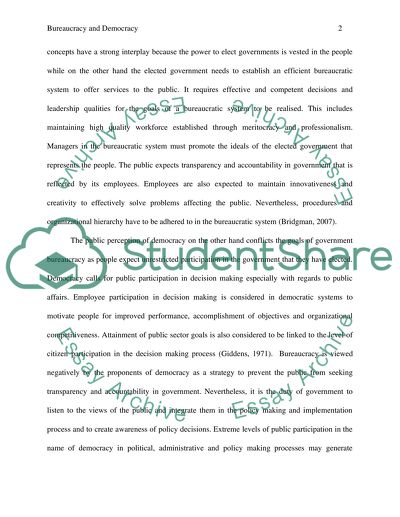Cite this document
(In Praise of Bureaucracy Essay Example | Topics and Well Written Essays - 1500 words, n.d.)
In Praise of Bureaucracy Essay Example | Topics and Well Written Essays - 1500 words. Retrieved from https://studentshare.org/politics/1632691-why-is-bureaucracys-relationship-to-democracy-so-conflicted
In Praise of Bureaucracy Essay Example | Topics and Well Written Essays - 1500 words. Retrieved from https://studentshare.org/politics/1632691-why-is-bureaucracys-relationship-to-democracy-so-conflicted
(In Praise of Bureaucracy Essay Example | Topics and Well Written Essays - 1500 Words)
In Praise of Bureaucracy Essay Example | Topics and Well Written Essays - 1500 Words. https://studentshare.org/politics/1632691-why-is-bureaucracys-relationship-to-democracy-so-conflicted.
In Praise of Bureaucracy Essay Example | Topics and Well Written Essays - 1500 Words. https://studentshare.org/politics/1632691-why-is-bureaucracys-relationship-to-democracy-so-conflicted.
“In Praise of Bureaucracy Essay Example | Topics and Well Written Essays - 1500 Words”, n.d. https://studentshare.org/politics/1632691-why-is-bureaucracys-relationship-to-democracy-so-conflicted.


